Sentence comprehension Normal Writing Worksheets for Ages 4-9
6 filtered results
-
From - To
Jumpstart your child's literacy journey with our Sentence Comprehension Normal Writing Worksheets, designed for young learners aged 4-9. These fun and engaging worksheets help children develop essential reading and writing skills, enhancing their ability to understand and construct sentences. Through a variety of age-appropriate activities, kids will practice making sense of sentences, identifying key details, and boosting their vocabulary. Ideal for both beginners and advanced learners, our worksheets provide a strong foundation in sentence structure, setting the stage for academic success. Perfect for at-home practice or classroom use, watch your child's confidence and skills soar with our expert-designed resources!
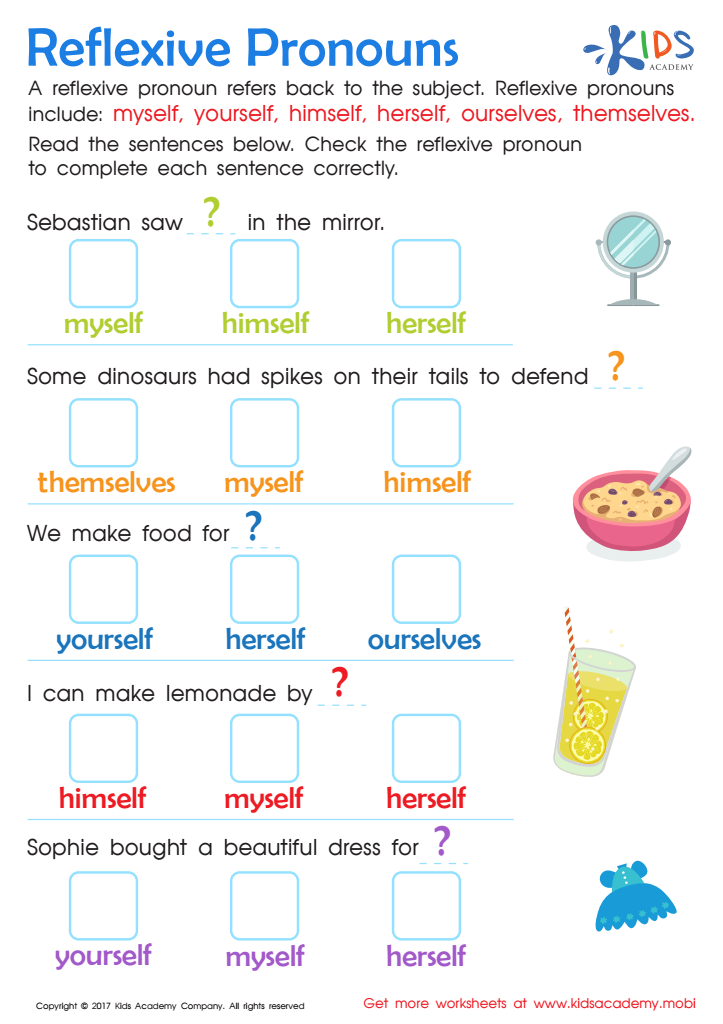

Reflexive Pronouns Worksheet
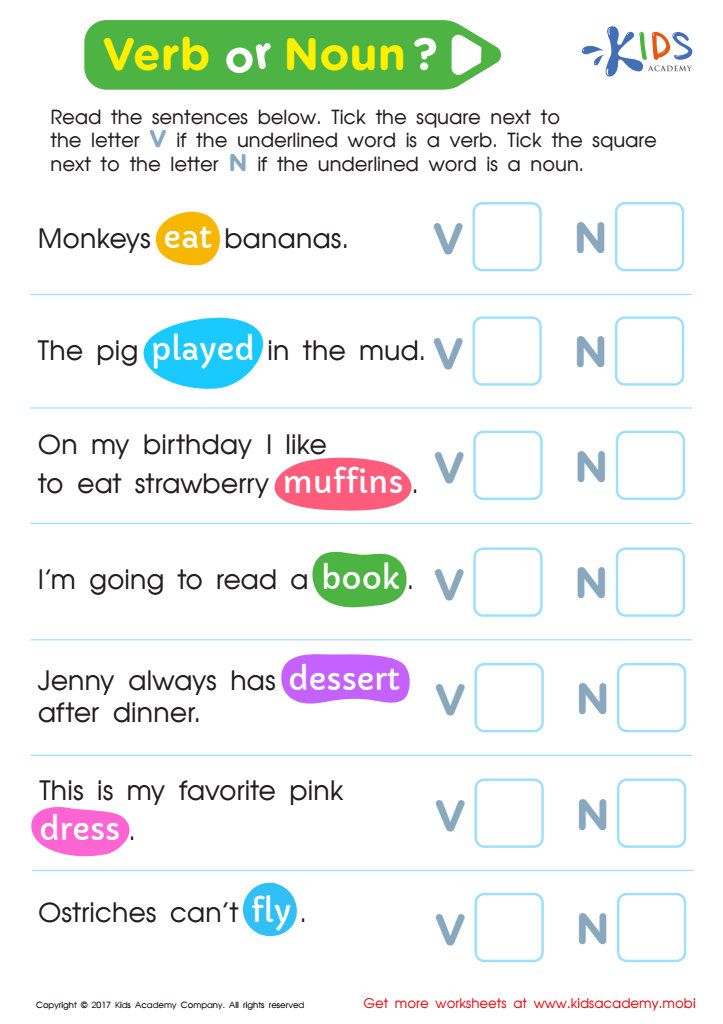

Verb or Noun Worksheet
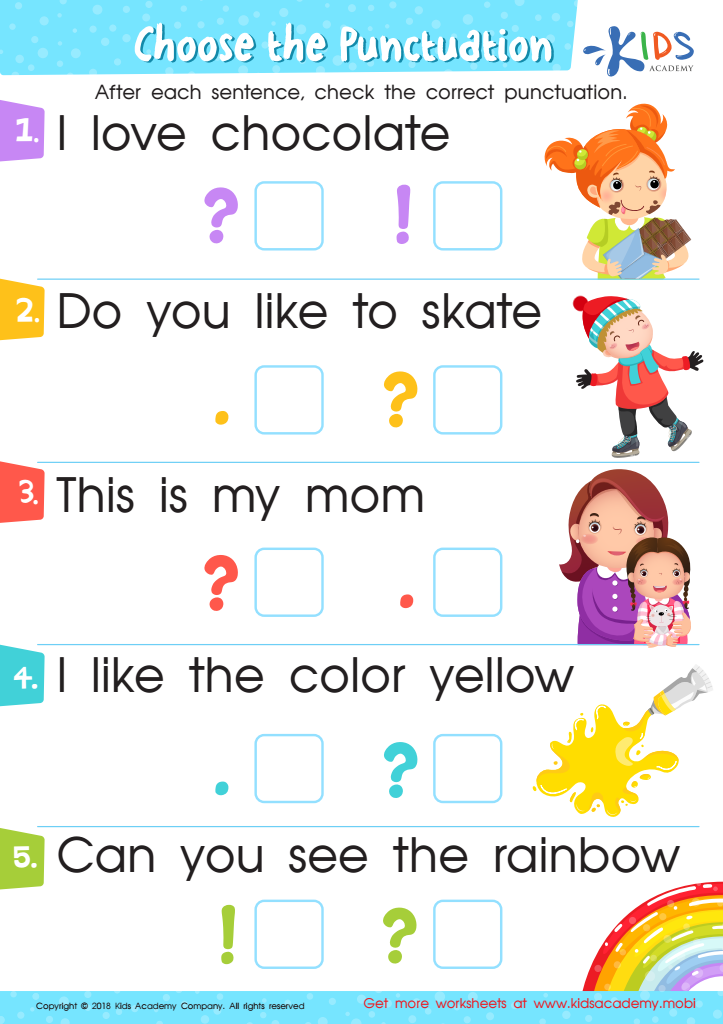

Choose the Punctuation: Assessment Worksheet
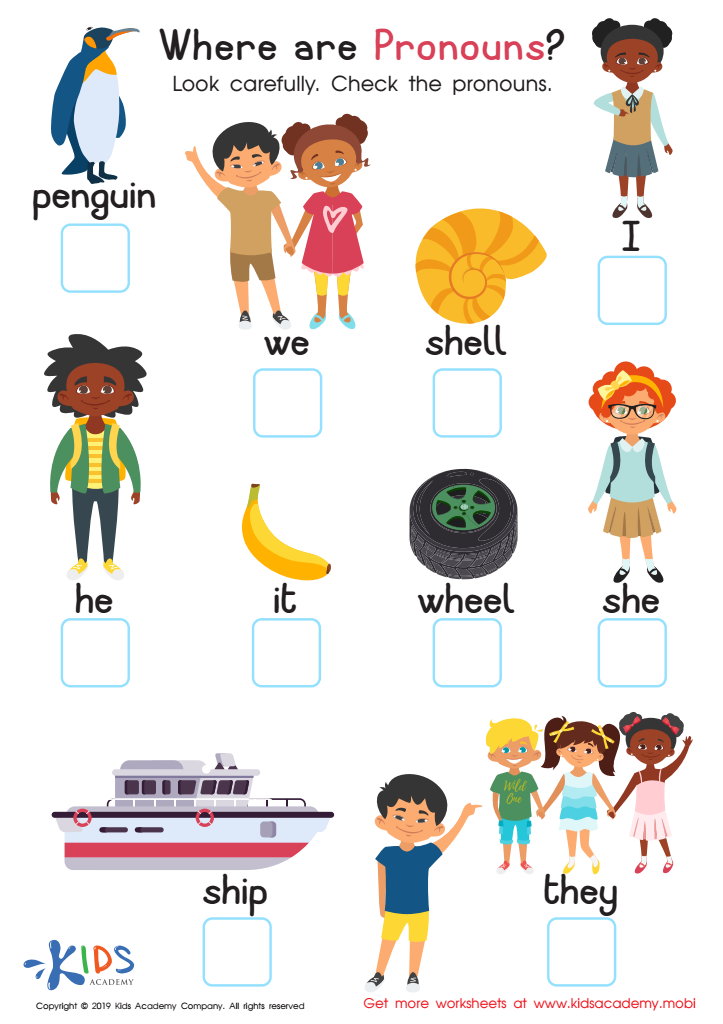

Where Are Pronouns? Worksheet
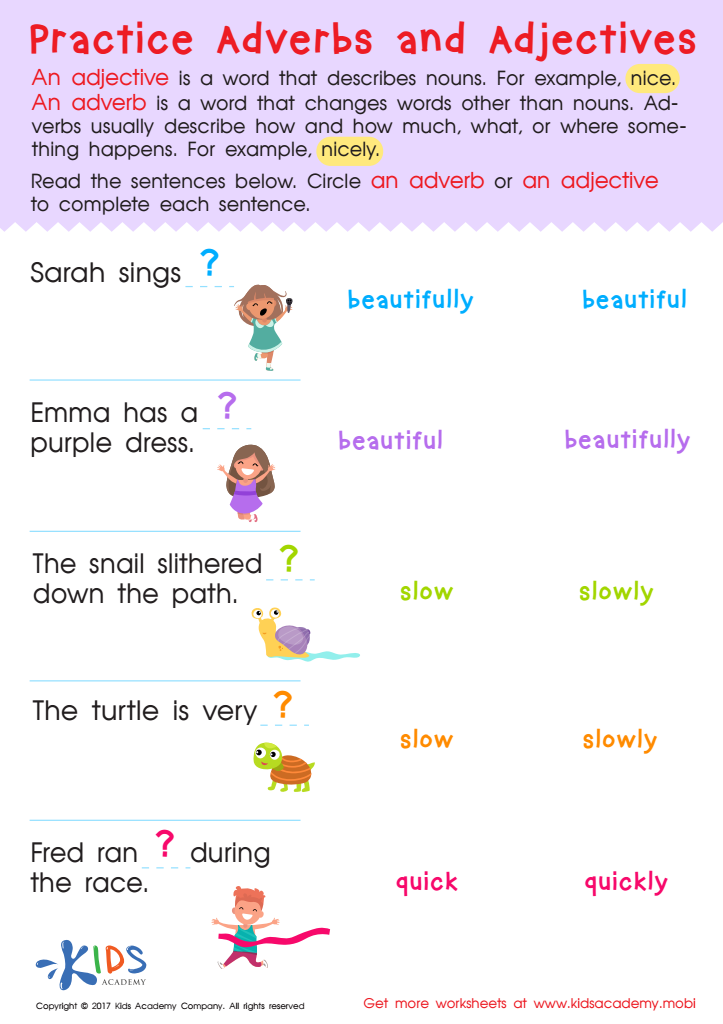

Adverbs and Adjectives Worksheet
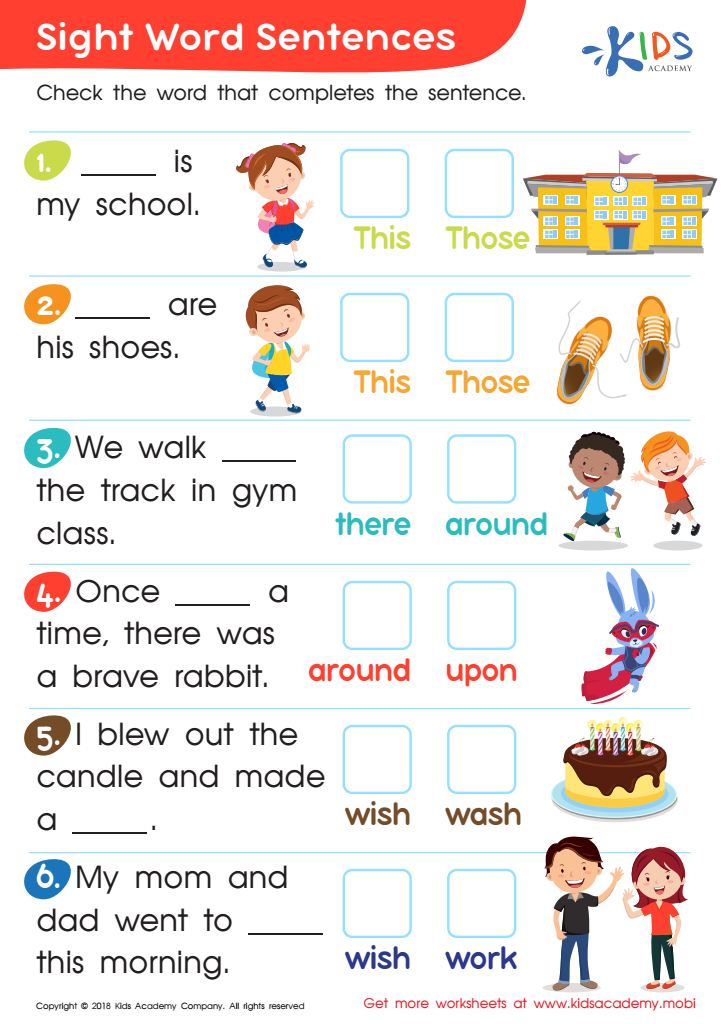

Sight Word Sentences Worksheet
Sentence comprehension is a foundational skill in a child's early development and directly impacts their academic success and everyday communication. For ages 4-9, mastering sentence comprehension allows kids to understand instructions, follow stories, and participate in conversations more effectively.
Parents and teachers should prioritize sentence comprehension because it enhances reading proficiency. When children grasp how sentences are structured and what they mean, they can read more fluently and with more confidence. This skill also improves their ability to decode new words and understand more complex texts over time.
Moreover, good sentence comprehension aids in writing. When children know how sentences work, they can compose their own sentences more clearly and correctly. This sets the stage for good writing habits and idea expression as they progress through school.
In the classroom, children who understand sentences can follow lessons better and are less likely to fall behind. At home, effective comprehension improves social interactions and can boost a child’s self-esteem. It allows them to engage in conversations, ask questions, and express their needs.
Overall, emphasizing sentence comprehension in the early grades builds a strong foundation for future learning and effective communication, making it a critical focus for both parents and teachers.
 Assign to My Students
Assign to My Students





















